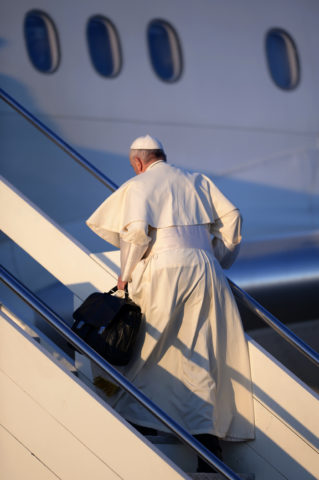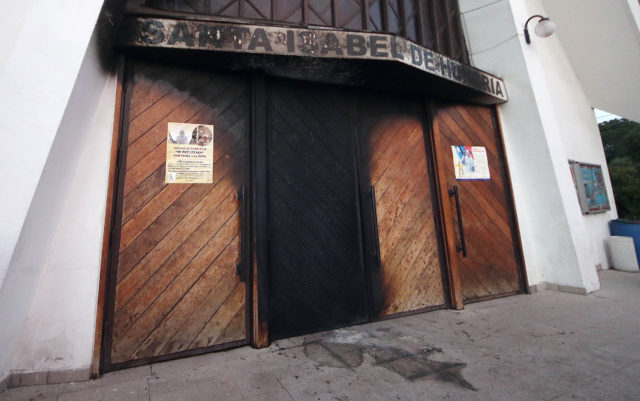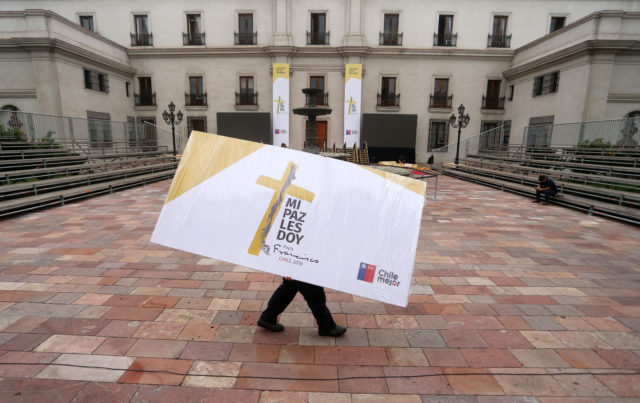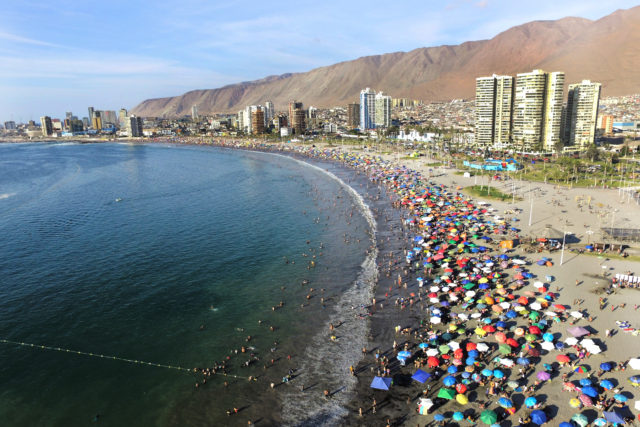On 19 June 2017, the Vatican announced that pope Francis was going to visit Chile in 2018, from 15 to 18 January.
The news became particularly special to those Catholic Chileans who live in one of the three cities the pontiff is set to visit: Santiago, the country’s capital; Temuco, in La Araucanía (south); and Iquique, in Tarapacá (north).
Nevertheless, following child molestation and sexual abuse scandals involving priests, the Church is not as popular as it once was.
Read as well: Former first lady openly against Pope Francis visit to Chile: “He just pays lip service”
In fact, Francis’ visit will unravel in a less Christian country that the one John Paul II found back in April 1987, which represents a challenge to the Church in a country in which atheists, agnostics and protestant figures are rising. President Michelle Bachelet is an agnostic herself; however, she has shown great sympathy towards the bishop of Rome’s trip.
Furthermore, according to Latinobarómetro, Chile has the lowest confidence level in the Church across Latin America (36%), below Argentina (55%), Brasil (69%), Bolivia (73%), Paraguay (77%) and the average of the region (65%).
The reasons behind this are also related to the fact that the Catholic population in the country is not only decreasing, but also aging, which means fewer baptisms, marriages, first communions and a smaller amount of young men interested in becoming priests. In the 1992 Census, 76,7% identified as Catholic which fell to 67,3% in 2012.

The State has shown willingness to contribute in terms of organizing Francis’ visit. For example, Congress passed bills to declare regional holidays.
Ms Bachelet stated that she is “proud” to lead the “fairer, more inclusive and better” Chile he will get to know.
The head of State also affirmed that the country has changed “for good” in the last 30 years, posting a column in a newspaper highlighting the strong democracy as well as the crucial social changes that Chile has witnessed.
In addition, she added that her Government has carried out plans and programmes which agree with his message. “We share the concern to focus on those who have been excluded from enjoying the results of (economic) development”, Bachelet said.
Francis’ trip has caused huge controversy due to the high cost of the visit, around 16 millon dollars. Almost 12 million to be spent by the State in matters of security, organization and logistics.
Hostility, indifference and fires
La Araucanía region hosts the majority of Chile’s largest indigenous group, the Mapuche people, who have openly denounced the use of a strip of land considered sacred by them during one of Francis’ masses, to be held on 17 January.
For long, the Mapuche have been targeted as a group who chooses violence in order to reassert their claim to the lands annexed by the Chilean State in the late XIX century.
Read as well: Top leaders of Chilean indigenous people arrested after massive police operation
Last week, four churches were firebombed ahead of Francis’ visit, with leaflets left around the burning ruins with pro-Mapuche slogans and threatening messages against the head of the Church. One of them read “the only church that illuminates is the one that burns”. Another said “Pope Francis, the next bombs will be in your cassock”.

The Public Prosecutor’s Office, along with the Police, opened an investigation on the matter and both president Bachelet as well as president-elect Sebastián Piñera condemned the attack on the temples.
Ms Bachelet stated that, in a democracy, all demonstrations have to be peaceful. Piñera, on the other hand, asked to welcome the Pope with “joy” and “in peace”.
On Tuesday, he is scheduled to visit the presidential palace, La Moneda, and to hold a meeting with Ms Bachelet. Bergoglio is going to give his first mass at Parque O’Higgins at 10:30am. Later, he will become the first pontiff ever to visit a women’s jail.

On Wednesday, he is going to travel to La Araucanía to offer a mass at the Maquehue airport, in Temuco, with his return to Santiago programmed at 3.30pm. On Thursday, he will travel to the far north, to Iquique, for another mass. Each mass is expected to draw 500,000 people.
Notwithstanding, Chileans graded Francis’ image with a 5.3 -on a scale from 0 to 10-. The approval of the Church has also dropped, from 44% -in 2015- to 36%, and last week a poll revealed that only 23% of the country regards his visit as important, 26% believes it is somewhat important and 50% thinks that his trip is not important.









